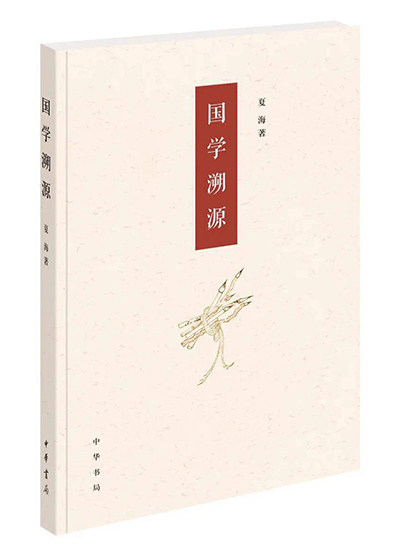Tracing spiritual resources through pre-Qin thoughts

Spiritual Sources of Ancient Chinese Civilization
Authored by Xia Hai, a Chinese studies scholar, Spiritual Sources of Ancient Chinese Civilization comprehensively examines the ideological sources of Confucianism, Taoism, Legalism, and Mohism, as well as seven sages including Confucius, Mencius, Xunzi, Laozi, Chuang Tzu, Han Feizi, and Mo Tzu, tracing the spiritual origins of Chinese civilization.
The book focuses on the overall background of the pre-Qin scholars' thoughts (prior to 221 BCE) and their internal interactions. Although these philosophers' doctrines mostly appear in the form of antagonism and debate, the core topics, or the ideological basis of knowledge systems share considerable commonality—a product of the holistic era of the Spring and Autumn and the Warring States period (770–221 BCE).
In the first chapter, the author comprehensively investigates how new changes in social forms, political structures, and economic systems impacted the development of ideology, culture, and education at that time. On this basis, the differentiation between and within various schools of thought is further explored.
The author repeatedly underscores commonality among various schools of thought, while also analyzing their respective uniqueness. For instance, in the second chapter on pre-Qin Confucianism, after discussing the differences between Mencius' and Xunzi's thoughts, the author looks for similarities. Both philosophers shared perspectives which venerated Confucius and strived to open up outer courses. Internal correlations on topics which the two philosophers highly disagreed upon are highlighted. These topics include the theory of human nature, a debate over the original goodness or evil of human nature, and methods for governance, a debate over wielding morality or violence in governance.
This book integrates the history of philosophy and a vision of political studies. The philosophical history angle observes the development and evolution of historical concepts, doctrines, and ideological systems, while the political perspective focuses on the establishment and operation of political entities including states and regimes.
For example, when discussing the value of The Han Feizi in politics, the author compares it with The Prince by Niccolò Machiavelli (1469–1527), noting their similarities in terms of human nature's presupposition and the means of governance. "After their birth, the two works were both scolded or banned on the surface, but in fact they became textbooks for autocratic monarchs and worshipped by rulers," the author writes. Such judgments provide a reference to understand the political theories in early classical works, though deeper discussions are required regarding accuracy.
This article was edited and translated from Guangming Daily.
Edited by YANG LANLAN
